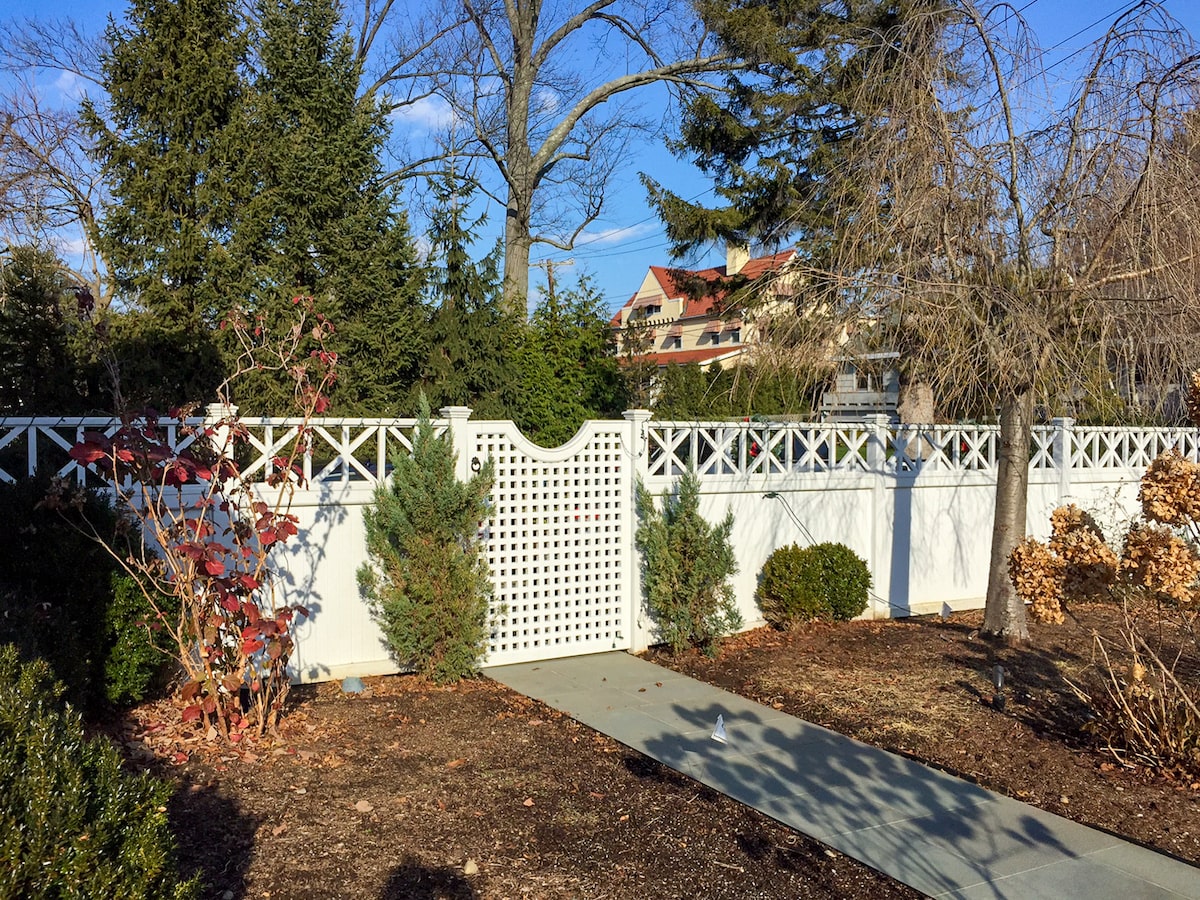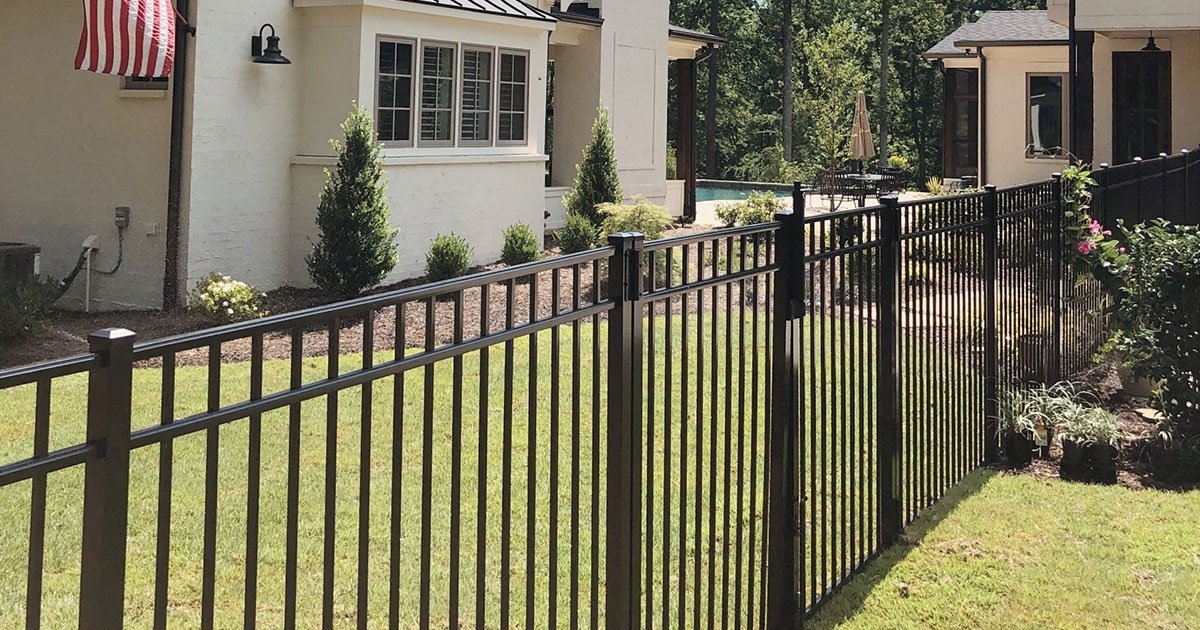All Categories
Featured
When you choose to set up a fencing around your home, it's crucial to understand the license demands details to your area. While mounting a fence can feel like a simple home renovation project, regional legislations and regulations should be followed to make sure the installment is compliant and legal. Stopping working to protect the appropriate authorizations could result in penalties or perhaps need you to eliminate the fence. Here's a detailed check out the licenses you might require for fencing installment.
Why Do You Need a License for Fence Installation? A fence is greater than just an obstacle in between properties-- it can influence safety, home value, aesthetic appeals, and also environmental problems. Local governments require permits to ensure that fencings fulfill specific requirements and do not cause problems for utilities, neighbors, or the neighborhood all at once. Permits additionally ensure that the installment adheres to zoning regulations, constructing codes, and safety guidelines.
![]()
Sorts Of Permits You May Require. Structure Authorization. A building permit is one of the most common permits needed for fence installation. If you're developing a fence over a particular elevation (normally over 6 feet), you'll likely need a building license.
Zoning Authorization. A zoning license ensures your fencing conforms with setback, location, and elevation regulations. Fences might need to be set back a particular distance from walkways, roads, or home lines to prevent blockage or disturbance with energies.
HOA Approval. If your residential property is part of a property owners association (HOA), you may require to seek authorization prior to mounting a fence. HOAs commonly have standards that regulate the looks and framework of fencings to ensure they agree with the area. You may require to submit your prepare for authorization, and the HOA may restrict fence material, style, or elevation.
Specialized Permits. In some areas, there may be extra permits required for particular situations. For example, if your fencing is near a secured environmental location or located in a disaster area, you might require to get specialized permits related to ecological effect. If the fence is in an area with underground energies, you might require to acquire clearance to avoid harmful pipes or cable televisions.
![]()
Easement or Energy Firm Authorization. Prior to installing a fencing, it's vital to examine whether the residential property consists of an easement, such as an utility easement, which can impact where you can place your fencing. Easements are areas of land assigned for personal or public utilities, and you might need authorization from the energy company or other authority to build within this area.
Exactly How to Learn What Permits You Need. To make sure that you're following all the essential policies, here's just how you can figure out the specific authorizations required for your fencing installation:
![]()
See Your City Government Office: The very first step is to get in touch with your local structure or zoning department. Many cities and areas have guidelines offered online that specify what types of licenses are needed for fence setup. Otherwise, calling or checking out the office personally can assist make clear the process. Inspect Your City's Website: Several communities provide information concerning fencing setups and the licenses called for with their official websites. Some web sites also permit you to send applications online. Get In Touch With a Fencing Installment Professional: If you're not exactly sure concerning regional laws, a professional fencing contractor can aid. They are acquainted with the permitting procedure and can lead you via the steps. The Repercussions of Not Getting an Authorization. Stopping working to secure the required licenses before setting up a fencing can cause significant consequences. For example, you may be fined or called for to get rid of the fence totally. In addition, if you decide to sell your property in the future, the lack of a permit might prevent potential buyers, as they might see it as an indicator that the residential or commercial property is not compliant with neighborhood regulations. Making certain that you have the correct authorizations will certainly save you time, money, and headaches in the lengthy run.
Conclusion. Setting up a fencing around your domestic property can add both safety and visual allure, yet it is very important to guarantee you're adhering to the lawful action in the procedure. Investigating the details permit demands for your location, including structure permits, zoning regulations, HOA authorization, and utility authorizations, will aid ensure your fencing setup goes smoothly. Putting in the time to recognize these requirements currently can save you from expensive blunders and possible lawful issues down the line.
Why Do You Need a License for Fence Installation? A fence is greater than just an obstacle in between properties-- it can influence safety, home value, aesthetic appeals, and also environmental problems. Local governments require permits to ensure that fencings fulfill specific requirements and do not cause problems for utilities, neighbors, or the neighborhood all at once. Permits additionally ensure that the installment adheres to zoning regulations, constructing codes, and safety guidelines.

Sorts Of Permits You May Require. Structure Authorization. A building permit is one of the most common permits needed for fence installation. If you're developing a fence over a particular elevation (normally over 6 feet), you'll likely need a building license.
Zoning Authorization. A zoning license ensures your fencing conforms with setback, location, and elevation regulations. Fences might need to be set back a particular distance from walkways, roads, or home lines to prevent blockage or disturbance with energies.
HOA Approval. If your residential property is part of a property owners association (HOA), you may require to seek authorization prior to mounting a fence. HOAs commonly have standards that regulate the looks and framework of fencings to ensure they agree with the area. You may require to submit your prepare for authorization, and the HOA may restrict fence material, style, or elevation.
Specialized Permits. In some areas, there may be extra permits required for particular situations. For example, if your fencing is near a secured environmental location or located in a disaster area, you might require to get specialized permits related to ecological effect. If the fence is in an area with underground energies, you might require to acquire clearance to avoid harmful pipes or cable televisions.

Easement or Energy Firm Authorization. Prior to installing a fencing, it's vital to examine whether the residential property consists of an easement, such as an utility easement, which can impact where you can place your fencing. Easements are areas of land assigned for personal or public utilities, and you might need authorization from the energy company or other authority to build within this area.
Exactly How to Learn What Permits You Need. To make sure that you're following all the essential policies, here's just how you can figure out the specific authorizations required for your fencing installation:

See Your City Government Office: The very first step is to get in touch with your local structure or zoning department. Many cities and areas have guidelines offered online that specify what types of licenses are needed for fence setup. Otherwise, calling or checking out the office personally can assist make clear the process. Inspect Your City's Website: Several communities provide information concerning fencing setups and the licenses called for with their official websites. Some web sites also permit you to send applications online. Get In Touch With a Fencing Installment Professional: If you're not exactly sure concerning regional laws, a professional fencing contractor can aid. They are acquainted with the permitting procedure and can lead you via the steps. The Repercussions of Not Getting an Authorization. Stopping working to secure the required licenses before setting up a fencing can cause significant consequences. For example, you may be fined or called for to get rid of the fence totally. In addition, if you decide to sell your property in the future, the lack of a permit might prevent potential buyers, as they might see it as an indicator that the residential or commercial property is not compliant with neighborhood regulations. Making certain that you have the correct authorizations will certainly save you time, money, and headaches in the lengthy run.
Conclusion. Setting up a fencing around your domestic property can add both safety and visual allure, yet it is very important to guarantee you're adhering to the lawful action in the procedure. Investigating the details permit demands for your location, including structure permits, zoning regulations, HOA authorization, and utility authorizations, will aid ensure your fencing setup goes smoothly. Putting in the time to recognize these requirements currently can save you from expensive blunders and possible lawful issues down the line.
Latest Posts
Experience the Style of Hardwood Flooring with Carpet Interiors Floor & Home
Published Apr 19, 25
1 min read
Unequaled Quality and Custom Solutions for every single Home
Published Apr 19, 25
1 min read
Discover the Benefits of Hyundai's Added Programs at Ron Marhofer Hyundai
Published Apr 19, 25
1 min read
More
Latest Posts
Experience the Style of Hardwood Flooring with Carpet Interiors Floor & Home
Published Apr 19, 25
1 min read
Unequaled Quality and Custom Solutions for every single Home
Published Apr 19, 25
1 min read
Discover the Benefits of Hyundai's Added Programs at Ron Marhofer Hyundai
Published Apr 19, 25
1 min read